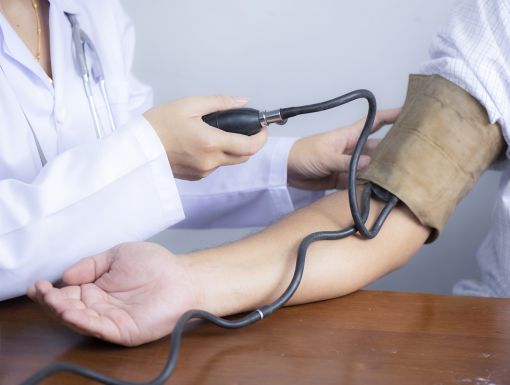What is High Blood Pressure?
What is high blood pressure? What is the difference between systolic and diastolic?
High blood pressure, also known as hypertension, is when your blood pressure, the force of your blood pushing against the walls of your blood vessels, is consistently too high.
In this video, Dr. Victoria Smith, associate medical director at St. Charles Parish Hospital, explains what those two numbers mean and resulting conditions.
"High blood pressure is a leading cause of someone having kidney failure or needing dialysis. High blood pressure can also lead to heart failure," Dr. Smith said.
When the heart beats, it creates pressure that pushes blood through a network of blood vessels, which include arteries, veins and capillaries. This pressure is the result of two forces: The first force (systolic pressure) occurs as blood pumps out of the heart and into the arteries that are part of the circulatory system. The second force (diastolic pressure) is created as the heart rests between heart beats.
Risk factors:
High blood pressure has many risk factors, including:
- Age. The risk of high blood pressure increases as you age. Until about age 64, high blood pressure is more common in men. Women are more likely to develop high blood pressure after age 65.
- Race. High blood pressure is particularly common among people of African heritage, often developing at an earlier age than it does in white people. Serious complications, such as stroke, heart attack and kidney failure, also are more common in people of African heritage.
- Family history. High blood pressure tends to run in families.
- Being overweight or obese. The more you weigh, the more blood you need to supply oxygen and nutrients to your tissues. As the amount of blood flow through your blood vessels increases, so does the pressure on your artery walls.
- Not being physically active. People who are inactive tend to have higher heart rates. The higher your heart rate, the harder your heart must work with each contraction and the stronger the force on your arteries. Lack of physical activity also increases the risk of being overweight.
- Using tobacco. Not only does smoking or chewing tobacco immediately raise your blood pressure temporarily, but the chemicals in tobacco can damage the lining of your artery walls. This can cause your arteries to narrow and increase your risk of heart disease. Secondhand smoke also can increase your heart disease risk.
- Too much salt (sodium) in your diet. Too much sodium in your diet can cause your body to retain fluid, which increases blood pressure.
- Too little potassium in your diet. Potassium helps balance the amount of sodium in your cells. A proper balance of potassium is critical for good heart health. If you don't get enough potassium in your diet, or you lose too much potassium due to dehydration or other health conditions, sodium can build up in your blood.
- Drinking too much alcohol. Over time, heavy drinking can damage your heart. Having more than one drink a day for women and more than two drinks a day for men may affect your blood pressure.
- Stress. High levels of stress can lead to a temporary increase in blood pressure. Stress-related habits such as eating more, using tobacco or drinking alcohol can lead to further increases in blood pressure. In a single year, more than 5.2 million people visited U.S. hospital emergency rooms for symptoms related to the nervous system.
Learn more about hypertension and treatment



